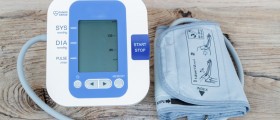I recently had a blood test and I have never seen this on my test results. Is this checking the Thyroid or what?
Thanks
Cynthia
Thanks
Cynthia
Loading...
Osmality is a test that measures the concentration of particles found in the fluid part of blood.
This test helps evaluate your body's water balance. Your doctor may order this test if you have signs of hyponatremia, water loss, or poisoning from harmful substances such as ethanol, methanol, or ethylene glycol. It may also be done if you have problems producing urine.
Osmolality increases with dehydration and decreases with overhydration.
In healthy people, when osmolality in the blood becomes high, the body releases antidiuretic hormone (ADH). This hormone causes your kidney to reabsorb water, which results in more concentrated urine. The reabsorbed water dilutes the blood, allowing the blood osmolality to fall back to normal.
Low blood osmolality suppresses ADH, reducing how much water the kidney reabsorbs. You pass dilute urine to get rid of the excess water, and blood osmolality increases.
Normal values range from 280 to 303 milliosmoles per kilogram.
This test helps evaluate your body's water balance. Your doctor may order this test if you have signs of hyponatremia, water loss, or poisoning from harmful substances such as ethanol, methanol, or ethylene glycol. It may also be done if you have problems producing urine.
Osmolality increases with dehydration and decreases with overhydration.
In healthy people, when osmolality in the blood becomes high, the body releases antidiuretic hormone (ADH). This hormone causes your kidney to reabsorb water, which results in more concentrated urine. The reabsorbed water dilutes the blood, allowing the blood osmolality to fall back to normal.
Low blood osmolality suppresses ADH, reducing how much water the kidney reabsorbs. You pass dilute urine to get rid of the excess water, and blood osmolality increases.
Normal values range from 280 to 303 milliosmoles per kilogram.
Loading...















